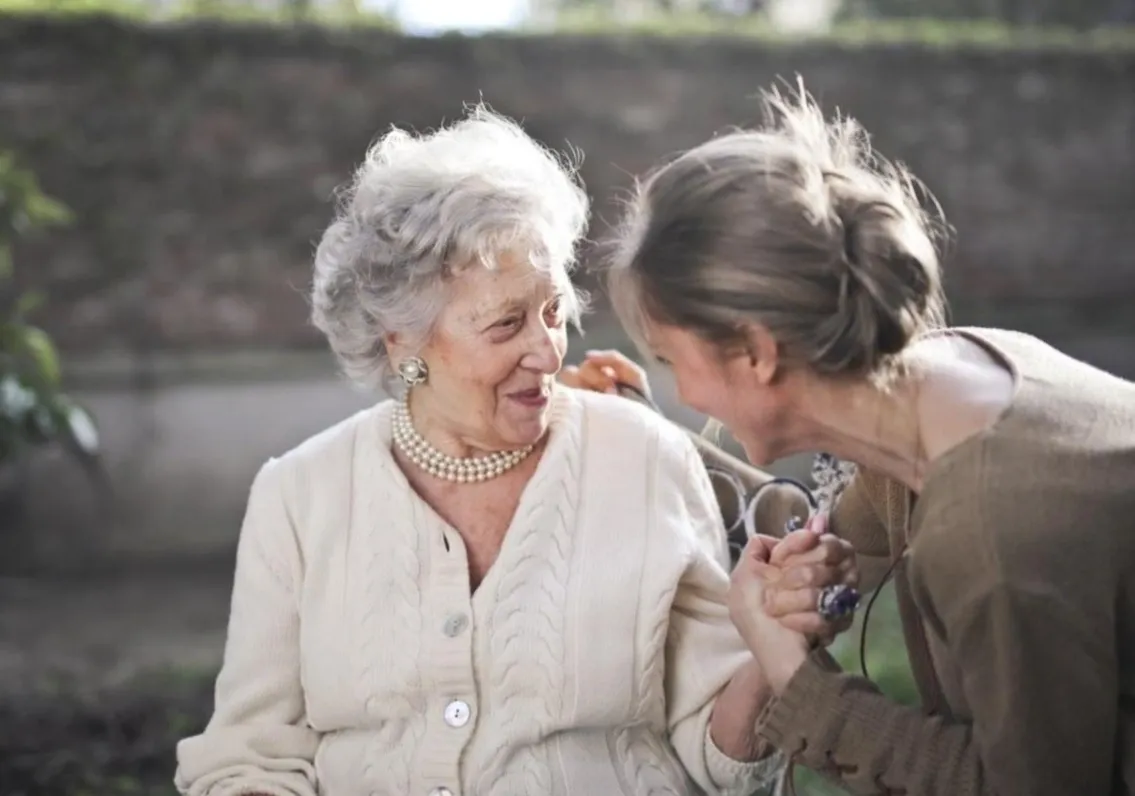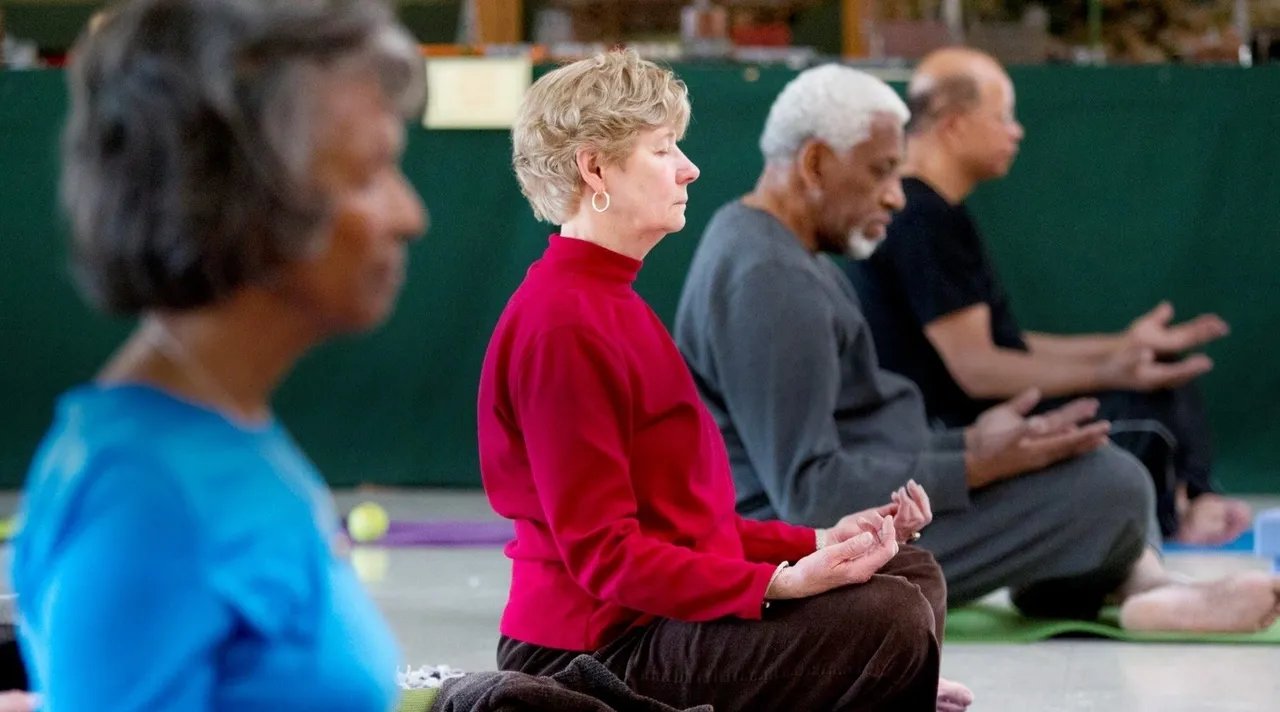
Balancing Elderly Care, Work, and Self: Practical Caregiver Tips
October 31st, 2023Caregiver Service, Companion Caregiver, Elderly Care, in home care assistance, Polish Care Services,
Managing the multiple roles that come with being a caregiver who provide elderly care for loved ones, an employee, and an individual with personal needs can feel like walking on a tightrope. The challenge intensifies when trying to excel in each area without compromising the others.
Along with ensuring the welfare of the person you’re caring for, you must foster your own mental and physical well-being. This article, courtesy of Polish Care Services, shares actionable tips for any caregivers navigating the intricacies of work, caregiving, and personal life.
Prioritizing Essential Tasks
When juggling roles as varied as caregiving, working, and personal development, prioritization becomes a crucial skill. Focus on tasks that are time-sensitive and essential to the well-being of your elderly loved one.
Prioritizing allows you to allocate your energy and time more efficiently, ensuring that you’re not overwhelmed by less important tasks. You can act more decisively and effectively when you know what needs immediate attention.
Acquiring an Online Degree
The juggling act between work and caregiving is complicated. Still, it doesn’t mean your career should come to a halt. Virtual learning has made it feasible for caregivers to consider furthering their education.
Enrolling in top-rated masters in nursing programs online, for instance, can be an excellent way to climb the career ladder while still attending to your caregiving duties. The flexible hours and online modules make it a perfect fit for your stringent schedule.
Implementing a Structured Routine
Life becomes a lot less chaotic with a well-thought-out schedule. Assigning specific time slots for different responsibilities (e.g., caregiving, professional work, personal activities, etc.) will help you maintain a routine. Consistency in following the schedule imparts a sense of discipline and ensures not a single aspect of your life is neglected.
Digitized All Important Documents
The modern world offers plenty of digital solutions that can make a caregiver’s life easier. One such example is using a mobile scanning app to store and share digital documents like legal paperwork. Having all your essential documents in a digital format makes them easily accessible and shareable, which can be a real time-saver in emergency situations.
Focusing on Personal Health
Caregiving is a demanding job, both physically and emotionally. But no caregiver who provides elderly care or other task can offer the best care if they’re not in their best shape. Maintaining a healthy lifestyle is non-negotiable. From getting enough sleep to eating balanced meals and exercising regularly, personal health should never take a back seat.
Utilizing Organizational Tools
Keep your tasks and responsibilities neatly organized by employing the use of digital tools or traditional planners. An organized approach simplifies the coordination of caregiving duties, work commitments, and personal activities. Calendars or task management tools can be excellent allies in staying organized, enabling you to fulfill your roles more efficiently and with less stress.
Reaching Out for Support
It’s okay to ask for help. Elderly care caregiving is often emotionally and physically draining, and doing it all on your own is impractical and detrimental to your well-being.
Reach out to friends, family, or community support groups to share responsibilities or emotional burdens. No one is an island, and a little help can go a long way in reducing your stress levels.
You might also benefit from hiring people to help with your caregiving duties. Polish Care Services offers a range of cleaning and caregiving services, all of which we carry out with compassion and professionalism.
Retaining a Sense of Individuality
Don’t forget to enjoy life amid the hustle and bustle. Your hobbies and personal interests are not frivolous but essential for your mental well-being. They offer an avenue to detach, relax, and rejuvenate. Setting aside time for activities that bring you joy can remarkably improve your mood and efficiency, making you a happier and thus better caregiver.
Summary
Striving to excel as a caregiver, a working professional, and an individual with a personal life may seem like a Herculean task, but it’s certainly possible. You can successfully balance these multifaceted roles by prioritizing tasks, enhancing your skills through education, adhering to a structured schedule, digitizing documents, staying organized, and focusing on self-care. Remember that a balanced life is not a myth but a realistic goal; the tips above can be your roadmap to achieving it.
Credit: June Duncan

Prevent Falls in the Elderly: 9 Tips for Safety and Independence
October 25th, 2023aging in place, Caregiver Service, Elderly Care, Polish Care Services,
Falls among the elderly can have devastating consequences, leading to serious injuries, reduced mobility, and a loss of independence. Fortunately, with proper awareness and a few preventive measures, falls can often be avoided. In this blog, we will explore nine vital strategies to help elderly individuals stay safe, maintain their health, and live an active, independent lifestyle.
- Keep homes clutter-free and well lit:
A primary cause of falls is tripping over objects scattered throughout the house. Clearing pathways of any loose rugs, cords, or furniture can significantly reduce this risk. Adequate lighting is crucial, especially in staircases, hallways, and frequently used areas. Consider installing automatic nightlights to help navigate safely during the night.
- Install grab bars and handrails:
Installing grab bars in bathrooms, along stairways, and near entryways provides the elderly with necessary support and stability. Reinforce existing handrails or install new ones to ensure a secure grip when using stairs or moving between rooms, thus minimizing the risk of falls.
- Promote regular exercise and physical activity:
Engaging in regular exercises tailored to the elderly’s abilities can significantly reduce the risk of falls. Such exercises can improve muscle strength, balance, and flexibility. Encourage activities like walking, yoga, and tai chi, which are known to improve balance and overall stability.
- Evaluate medication side effects:
Certain medications may cause dizziness, drowsiness, or impaired balance, increasing the risk of falls. Encourage the elderly to consult with their healthcare providers regularly to reassess medication side effects. It is important to follow the prescribed dosage and seek professional advice before making any changes.
- Encourage regular eye and foot care:
Diminishing eyesight and foot problems can contribute to fall incidents. Encourage elderly individuals to have regular eye exams to maintain good vision. Assist them in wearing appropriate, well-fitting footwear that provides necessary support and reduces the risk of trips and falls.
- Create a safe bathroom environment:
The bathroom is a common location for falls. Implementing simple modifications can significantly enhance safety. Consider installing non-slip mats, shower seats, and adjustable handheld showerheads. Use bathmats with suction grips and install a commode chair if needed.
- Review and adapt living spaces as needed:
Evaluate living spaces for potential hazards and adapt accordingly. This may include installing ramps or handrails for easier access, removing threshold barriers, or rearranging furniture to create clear pathways. The aim is to eliminate obstacles and ensure a safe and convenient living environment.
- Support regular health check-ups:
Regular health check-ups can help identify underlying medical conditions that may contribute to falls, such as osteoporosis, heart disease, or diabetes. Encourage elderly family members to keep their medical appointments and ensure they receive appropriate medical attention to mitigate potential fall risks.
- Promote the use of assistive devices:
Assistive devices, such as canes, walkers, or non-slip footwear, can offer an extra layer of stability and reduce the likelihood of falls. Encourage their regular use and ensure devices are properly fitted and adjusted individually to ensure maximum support and effectiveness.
Preventing falls among the elderly is essential for their overall safety, independence, and quality of life. By implementing these nine preventive strategies, we can create environments that support the elderly and minimize their risks. Encouraging regular exercise, decluttering living spaces, and making appropriate modifications can all contribute significantly to fall prevention. By taking these steps, we can empower our elderly loved ones to lead active, fulfilling lives while reducing the concern of falls and related injuries.
Polish Care Services provides flexibility in offering live in and hourly non-medical personal assistants or caregivers, as homemakers and companions, and provide live in and hourly services to help keep seniors and disabled safe in their homes. Contact us to learn how we can assist.

How to Help Your Elderly Parents Age in Place
August 9th, 2023aging in place, Companion Caregiver, Polish Care Services, Senior Care Services,

Many older adults prefer to stay in their own homes as they age, rather than move to a senior living facility or another location. This is known as age in place, and it can have many benefits for seniors, such as maintaining their independence, comfort, and familiarity. However, aging in place also comes with some challenges and risks, such as safety hazards, isolation, and health issues. If you have elderly parents who want to age in place, you may wonder how you can support them and ensure their well-being. Here are some tips and resources to help you help your parents age in place successfully and safely.
Assess their needs and abilities
The first step to helping your parents age in place is to assess their current and future needs and abilities. You can do this by observing how they perform their daily activities, such as bathing, dressing, cooking, cleaning, and managing their medications. You can also talk to their doctors about their health conditions and how they may affect their functioning and quality of life. Based on this assessment, you can identify the areas where your parents may need some assistance or modifications to continue living at home.
Make their home safe and accessible
One of the most important aspects of aging in place is making sure that your parents’ home is safe and accessible for them. This may involve some home modifications or repairs, such as installing grab bars, ramps, handrails, nonslip mats, smoke detectors, and emergency alert systems. You can also declutter their home and remove any tripping hazards, such as loose rugs, cords, or furniture. You can find more tips on how to make your home safe and accessible while aging in place here.
Hire professional caregivers or services
Depending on your parents’ needs and preferences, you may want to hire some professional caregivers or services to help them with some tasks or provide some companionship. For example, you can hire a personal service attendant to assist your parents with bathing, dressing, grooming, or toileting. You can also hire a home health nurse to provide medical care, such as wound care, injections, or blood pressure monitoring. You can also hire a homemaker to help with household chores, such as cleaning, laundry, or grocery shopping, a companion to be a friend, conversation and play games your loved one likes. You can also hire a meal delivery service to bring nutritious meals to your parents’ home.
Build a network of support
Another key factor for successful aging in place is having a strong network of support for your parents. This network can include family members, friends, neighbors, volunteers, or community organizations that can provide emotional, social, or practical support for your parents. For example, you can ask your relatives or friends to check on your parents regularly or help them with some errands. You can also encourage your parents to join a senior center or a faith group where they can socialize and participate in activities. You can also connect your parents with some resources and organizations that can offer them assistance or guidance on various issues related to aging in place. You can find more information on how to build a network of support for aging in place here.
Plan for the future
Finally, it is important to plan for the future as your parents age in place. This means having honest and respectful conversations with your parents about their wishes and expectations for their care and living arrangements as they get older. It also means preparing the necessary legal and financial documents that can protect your parents’ rights and interests in case they become incapacitated or pass away. These documents may include a will, a power of attorney, a health care proxy, an advance directive, and a living trust. You can find more information on how to plan for the future as you age in place here.
Aging in place can be a rewarding and fulfilling option for many seniors who want to stay in their own homes as they grow older. However, it also requires some planning and preparation to ensure that they are safe, comfortable, and happy. By following these tips and using these resources, you can help your elderly parents age in place successfully and safely.
Polish Care Services agency can help with assigning live in and hourly personal services attendant to assist with ensuring quality of life while your loved ones enjoy home. Please contact 860-255-8278 in Connecticut and 941-212-0310 in Florida to see how they can assist.
Credit: Vanessa Hoffman

AI Benefits for the Elderly and Disabled
June 15th, 2023aging in place, Alzheimer's Care, Caregiver Employment, Caregiver job, Caregiver Service, Companion Caregiver, Dementia Care, Elderly Care, Fall Activities for Seniors, Hire CNA, Hire HHA, Hire PCA, Home Healthcare, Homecare, House Cleaning, In Home Care, Long Term Care, Outdoor Activities for Seniors, Polish Care Services, Retirement Plans for Seniors, Senior Care Services, Spring Activities, Summer Activities for Seniors,
Although there is so much consternation and hype, Artificial Intelligence (AI) can benefit the elderly and disabled population in many ways. Some of the benefits include:
- Health monitoring and assistance through wearable devices and smart home systems: AI can be used to monitor the health of elderly individuals through wearable devices and smart home systems. These devices can track vital signs, such as heart rate and blood pressure, and alert caregivers or medical professionals if there are any concerning changes. Smart home systems can also be used to monitor the movements and activities of elderly individuals, providing an additional layer of safety and security.
- Medication management: AI can assist with medication management by providing reminders to take medications, tracking medication usage, and alerting caregivers or medical professionals if there are any missed doses or potential drug interactions.
- Social interaction and companionship: AI can provide social interaction and companionship to elderly individuals through virtual companions, such as chatbots or virtual assistants. These companions can engage in conversation, provide entertainment, and help alleviate feelings of loneliness and isolation.
- Cognitive stimulation and memory support: AI can provide cognitive stimulation and memory support to elderly individuals through games, puzzles, and other activities designed to exercise the brain and improve cognitive function. AI can also assist with memory support by providing reminders for important events or appointments.
- Daily living assistance: AI can assist with daily living tasks, such as meal preparation, housekeeping, and personal care. This can help elderly individuals maintain their independence and continue living in their own homes for longer.
- Increased independence: By providing assistance with daily living tasks, health monitoring, medication management, and other areas, AI can help elderly individuals maintain their independence and continue living in their own homes for longer.
- Lower healthcare costs, better transportation, and longer employment: AI can help lower healthcare costs by improving health monitoring and early detection of potential health issues. AI can also assist with transportation by providing ride-sharing services or autonomous vehicles designed for elderly individuals. Additionally, AI can help extend employment opportunities for elderly individuals by providing job-matching services or remote work opportunities.
- Virtual companions: As mentioned earlier, virtual companions such as chatbots or virtual assistants can provide social interaction and companionship to elderly individuals.
- Anti-aging research: AI can assist with anti-aging research by analyzing large amounts of data to identify potential treatments or preventative measures for age-related diseases.
- At-home health monitoring: As mentioned earlier, AI can assist with at-home health monitoring through wearable devices and smart home systems.
- Smart device-assisted daily living: Smart devices equipped with AI technology can assist with daily living tasks such as turning on lights, adjusting the thermostat, or locking doors.
- Smart device-assisted fall detection: Smart devices equipped with AI technology can detect if an elderly individual has fallen and alert caregivers or medical professionals.
- Improved quality of care: By providing assistance in areas such as health monitoring, medication management, daily living assistance, and more, AI can help improve the overall quality of care for elderly individuals.
AI is also helpful in intelligent tracking of biometric information to early diagnosis of diseases, understanding the treatment pathways, and helping clinicians to take care of elderly and disabled people and treat them more efficiently.
Polish Care Services team provides blogs and news articles that are not only informative and entertaining, but can enhance the wellbeing of seniors and disabled in Connecticut and Sarasota County in Florida
Credit: Bing AI, Google AI, Peter Powell

The Benefits of a Caregiver Agency
June 13th, 2023aging in place, Alzheimer's Care, Caregiver Employment, Caregiver job, Caregiver Service, Companion Caregiver, Dementia Care, Elderly Care, Hire CNA, Hire HHA, Hire PCA, Home Healthcare, House Cleaning, In Home Care, Long Term Care, Outdoor Activities for Seniors, Polish Care Services, Retirement Plans for Seniors, Senior Care Services, Spring Activities, Summer Activities for Seniors,
Caregiving is a rewarding but challenging job that requires compassion, patience, and skill. Many people who need assistance with daily living tasks, such as seniors, people with disabilities, or people recovering from illnesses or injuries, prefer to receive care at home rather than in a facility. However, finding and hiring a reliable, qualified, and affordable caregiver can be difficult and time-consuming for families. That is why many families choose to work with a caregiver agency, which can offer many benefits over hiring an independent caregiver.
A caregiver agency is a registered business that employs caregivers and sends them to the home of the care recipient to provide in-home care. The agency can provide medical care or non-medical care, depending on the needs and preferences of the client. The agency also takes care of the administrative aspects of hiring and managing the caregivers, such as background checks, payroll, scheduling, training, and supervision.
Some of the benefits of hiring a caregiver through an agency are:
- Quality: an agency typically will verify caregivers’ credentials, certifications, and experience in addition to performing background checks. An agency will provide continuous training and development to ensure caregivers and office staff are up to date with current skills and practices This ensures that the caregivers are qualified, competent, and up-to-date on the best practices and standards of care.
- Safety: Agencies are responsible for ensuring that the caregivers follow safety protocols when providing care at home. They provide workers compensation and liability insurance for their employees. This protects clients and caregivers in case of accident and work-related injuries.
- Flexibility: Agencies can offer a range of services and schedules to suit the needs and preferences of different clients. They can provide non-medical and other services that may suit the clients needs. Whether it is hourly services, live in assistance, long term or temporary services, The agency will match the caregiver that is considered a best fit for the client based on personality, skills, experience and availability.
- Reliability: Agencies will have a pool of caregivers who is able to cover desired shift or back up assistance in case of emergencies or absences. This means that the client will always have someone to provide care at home without interruption or inconvenience. They can also manage issues or complaints that may arise between the client and the caregivers.
- Support: Agencies can provide additional support and resources for both the client and the family. They can help to coordinate other services or referrals such as medical appointments, social activities, transportation, equipment. They can also provide emotional support and guidance for the client and family members who are involved in caregiving.
In conclusion, hiring a caregiver through an agency can offer many benefits for both the client and the family. It can ensure quality, safety, flexibility, reliability, and support for in-home care. It can also save time and hassle for families who are looking for a trustworthy and affordable caregiver. Therefore, working with an agency can be a smart choice for families who need help with caregiving at home.
Polish Care Services is a Homemaker Companion agency registered in Connecticut and Florida that provides support services for seniors and disabled, whether it is live in services, hourly support, or overnight assistance. The supportive office team works with the client to find a match for their needs and is a constant support for the client and staff throughout the process.
Credit: Madeline Sinatro

Types of Care Options for Seniors: Long Term Care Option
March 15th, 2023aging in place, Alzheimer's Care, Caregiver job, Dementia Care, Elderly Care, In Home Care, Long Term Care, Polish Care Services, Senior Care Services,
What is Long Term Care?
Long-term care is comprised of a wide range of support services provided over an extended time period. Long-term care is not limited solely to the elderly. Forty three percent of individuals requiring this are younger than 65 years old, this may also include disabled young adults. The majority of recipients of this care are 65 years of age and older.
It can be temporary or permanent. However, this depends upon the underlying reason for the care.
Temporary long-term care (weeks or months) may include:
- Recovery from an injury or illness
- Rehabilitation after a surgical procedure
- Rehabilitation after a hospital stay
- End of life medical services
Reason for permanent (on-going) long-term care (months and years) can include:
- Chronic medical conditions
- Chronic severe pain
- Need for supervision
- Permanent disabilities
- Need for assistance with activities of daily living
- Muscular impairment caused by Parkinson’s
- Cognitive impairment which may cause brain injury, Alzheimer’s or Dementia.
Long-term care need may be instantaneous, examples are, after a car accident, a heart attack or stroke. However, the care need increases gradually, as individuals age and become more frail or as disability or an illness worsens.
Although there are advanced studies, It is difficult to predict who will need long-term care and the duration of care needs, there are several factors that increase the risk of the need for long-term care
- As individuals age, they become more frail
- Women generally live longer, and often need long-term care for a periods twice as long as men.
- An individual’s risk increases with poor diet and lack of exercise, lifestyle and habits,
- Health and family history also plays a vital role.
Categories and Levels
Most long-term care falls into the category of personal or custodial care, rather than medical or skilled care. Personal care provides assistance with what is generally referred to as activities of daily living and/or provides for the supervision of an individual who is cognitively impaired.
Activities of Daily Living (ADLs) include the normal activities necessary to live at home. These personal care activities generally fall into four category types:
- Meal Preparation includes the planning and preparation of meals
- Household Chores includes routine tasks necessary for the upkeep of a home such as cleaning, laundry and yard maintenance
- Personal Hygiene includes bathing, grooming, dressing and toileting
- Errands and Transportation includes driving and shopping assistance
It’s easy to take being able to perform activities of daily living (ADLs) for granted until you or family member experiences a chronic or degenerative condition and can no longer accomplish these tasks alone.
There are four different levels or frequency of care Long-term care:
- Occasional assistance is performed a few times a month
- Minimal assistance may only be needed two to three times per week
- Significant assistance may be needed as often as five times per week
- Maximum assistance might be needed daily.
In-Home Care
Long-term care in the home is often provided by care providers or caregivers who may be enlisted to provide housekeeping, personal care and other functions to enhance the quality of life for the individual.
Long-Term Care Insurance
With the increasing costs of this care, this insurance may be the best way to ensure as you or your loved one get older, your long-term care needs are met and your assets are protected.
Polish Care Services provides trained and experienced caregivers to assist seniors or disabled in their home or care facilities. Call 860-255-8278 to see how our Polish Care Services caregivers can assist you or your loved one. long term care insurance options for seniors

5 Tips to Help First-Time Caregiver Manage Their Responsibilities
January 20th, 2023aging in place, Alzheimer's Care, Caregiver Employment, Caregiver Service, Companion Caregiver, Elderly Care, In Home Care, Long Term Care, Outdoor Activities for Seniors, Polish Care Services, Retirement Plans for Seniors, Senior Care Services, Uncategorized,
Being a first-time caregiver can be an incredibly rewarding experience. However, it can also be overwhelming. This could be due to caregiver anxiety which makes you feel uncertain regarding the level of care you are providing your loved one. But it’s important to remember that you can always reach out to family or even professionals to assist you in caregiving. In this article by Polish Care Services, we’ll explore the best strategies new caregivers can adopt to avoid burnout while providing the highest level of care to their loved ones.
Educate Yourself About the Condition
The type and duration of care required will depend on the condition(s) your loved one is diagnosed with. A good first step will be to learn as much as you can regarding their symptoms and the best caregiving strategies you can adopt. For instance, if your loved one has a mobility disability, moving their bedroom to the ground floor and adjusting the home’s layout to their needs will make their lives much easier.
Reading articles published by medical expertsabout their condition will be the best resource for education. Additionally, you can search for videos to learn from other caregivers regarding the best strategies used by them at home.
Leverage Technology to Complement Healthcare
Many caregivers refrain from allowing their loved one to be home alone owing to the fear of safety. While their concern is justified, in the long run, this has a negative impact on mental health owing to the lack of socialization and isolation.
However, now there are various types of technology caregivers can install in their homes, such as cameras to monitor the property and check up on your loved one (if they are comfortable having cameras indoors). In addition, remote-controlled locks that send you a notification each time the main/back door is opened, as reported by Vivint, and motion sensor lights, allowing your loved ones to move freely around the home without the need to reach a switch.
Maintain Accurate Paperwork
Another area where you should leverage the power of technology is to maintain healthcare paperwork regarding your loved one. In addition to test results and doctor prescriptions, you can also include personal notes regarding your loved one’s response to therapy or other caregiving tools. Not only will this help you improve the level of care, but doctors can utilize this information to provide better treatment as well.
The best way to keep paperwork organized will be to use a document management system, for which you can try this free resource!
Ask for Help
Caregiving is a tough job to manage alone, especially for family caregivers. Hence, rather than burning yourself out trying to manage everything single-handedly, reach out to those around you for help.
This can include family members who can pitch in with caregiving, whether that be to give your loved one company, drive them to doctor appointments, or help out with home chores such as buying groceries, etc. Taking help from others will help to free up time in your day to dedicate towards self-care, hobbies, exercise, or to learn more about the condition.
Practice Self-Care Activities
Constantly neglecting your health needs is bound to lead to caregiver burnout. Which, according to Cleveland Clinic, can lead to changes in sleep patterns, mood disruptions, loss of appetite, reduced cognitive function, and more. The best way to keep caregiver burnout at bay is to dedicate at least an hour a day towards self-care activities such as:
● Exercise – which serves as a great way to stay physically and mentally fit.
● Meditation – that helps you gain control over your thoughts, helping to keep stress in check
● Music/Dance or other hobbies – engaging in activities that provide a sense of fulfillment has a positive impact on mood and self-esteem.
Trying to manage caregiving duties single-handedly is not something first-time caregivers should try. Given the importance caregiving plays in your loved ones’ life, it’s best to ask for help and take assistance from professionals. Additionally, remember to maintain notes and share them periodically with the doctor.
Credit: June Duncan

Is It Time to Move Closer to Your Senior Relative? How to Tell
November 19th, 2022aging in place, Alzheimer's Care, Caregiver Service, Companion Caregiver, Dementia Care, Elderly Care, Fall Activities for Seniors, Home Healthcare, In Home Care, Janitorial Service, Long Term Care, Outdoor Activities for Seniors, Polish Care Services, Retirement Plans for Seniors, Senior Care Services, Spring Activities, Summer Activities for Seniors,
It can be hard to be apart from your family as they age. You might be thinking about moving closer to a senior relative who lives in another city or state just because you want to see them more often, or perhaps they now need a little more support to get through the day-to-day activities they used to manage with ease. Moving for a loved one is a big decision, and there are many things that need to be taken into consideration before making the move. Today, Polish Care Services shares some tips to help you decide if it’s time for you to be closer to your senior relative.
Ask Yourself These Questions
You can start by asking some probing questions. Your answers will help reveal whether it’s time to be closer to your senior loved one.
● Is their current caretaker stressed out?
● Do you feel guilty for not visiting more often?
● How much can you afford to spend to relocate?
● Is your loved one no longer capable of living on their own (i.e., cooking, cleaning, taking care of personal hygiene)?
After you’ve asked yourself these questions, it’s time to consider what your senior relative thinks about you being closer to them.
Ask for Their Opinion
It is important to speak with your family member before making any decisions. They might not be as receptive as you think. If it’s determined that they require your care and assistance, you need to consider how they feel about you moving away from your current life, friends, and neighbors. If this is a difficult decision for you, it could be even more difficult for them. Although you may feel like it’s time to move closer together for the sake of convenience, they might not want to go through such a big change, especially if you have your own family coming with you.
You also need to consider how much care or assistance your senior relative needs. Do they need someone there all the time? Do they require an in-home nurse? Is there an adult daycare center near them? If so, does it have space available? There are many questions you’ll have to answer before moving closer.
Perhaps there are technologies and services that, if used, can allow your loved one to live independently for awhile longer. Consider hiring a gardener or housecleaner to help with daily tasks, and look for meal services to reduce the amount of cooking your loved one needs to manage. You can install a security system that allows you and your loved one to monitor the house. There are even options that will let you check on your loved one if they don’t answer the phone.
Discuss Living Situations
If you decide to make the move, think hard about your living situation. Will you buy or rent a house? Will you and your aging loved one move in together or will you live separately while still providing care? Don’t make these decisions for your loved one. Instead, talk with them and really listen to their desires and fears. AgingCare.com emphasizes the importance of really listening and being open to your loved one’s thoughts. Be sure to discuss the following questions: Is their current home no longer sufficient for their care? Will you need to buy a home that accommodates them, you, and your family? And if so, how will that play into your decision to move?
Discuss these possibilities – including asking pertinent questions and taking appropriate considerations regarding buying a new home – with your family and get their input on the best course of action to care for your senior relative. It’s important that everyone is on the same page, as this will help reduce stress and conflict.
Preparing for the Move
If you are uncertain whether this move will be long or short term, renting might be your best option, especially if your entire family won’t be moving with you. Not only will renting make it easier to pack up and move when or if the time is right, it can be less expensive and reduce the responsibilities of home ownership while you’re also helping your loved one. For instance, you can rent an apartment in Farmington for as little as $1,550 a month.
If you choose to buy a house, your debt-to-income ratio will be a key factor in your ability to qualify for a home loan. Lenders look at your income and the amount of money you spend on expenses each month, and they compare that to your debt. To determine how much of your income would be left over to put toward a mortgage payment, you can use an online mortgage calculator. Be sure to factor in what you will do with your current home, if you own one.
Your lender will also want to know if you have any recurring monthly obligations, like car payments or student loans. Generally, lenders will prefer to see at least 36% of your income available for your mortgage payment. A larger percentage means there is less risk for defaulting on the loan.
When planning for your move, remember to factor in ancillary expenses such as moving services. And if you will be moving your aging loved one, too, it’s a good idea to consider hiring a moving company that’s experienced with moving seniors and, preferably, has a senior move specialist on staff.
Figuring Out Your Work Situation
If you are moving and caretaking will become your full-time job, then make sure you can financially handle that shift. If you still need to work, consider looking for part-time work in your new area or search for a remote position you can do while caretaking. However, if you are a business owner, you will need to decide how the move will affect your business. You could choose to keep things as is while working remotely, which requires the least amount of transitioning. But if you choose to move your entire business, including employees and office or storefront, be sure to notify your employees right away and give them options regarding relocation packages or switching to remote.
Move Forward
Deciding to move closer to an aging loved one is a big decision, particularly if you’ll have to buy or rent a home or even relocate your business. Be sure to include your family members and your loved one in this decision; however, if you feel that your relative’s health or well-being is in jeopardy, act quickly. This transition may be difficult for all of you, so try to respond with kindness and patience as everyone adjusts. Remembering that you are making these changes for your loved one’s best interests can help you to persevere during tough times.
Polish Care Services provides high quality service, compassion and professionalism for cleaning, and caregivers that will meet or exceed expectations. Call 860-255-8278.
Credit: June Duncan

How Seniors Can Handle Common Health Care Challenges
November 9th, 2022aging in place, Alzheimer's Care, Caregiver Employment, Caregiver job, Caregiver Service, Companion Caregiver, Dementia Care, Elderly Care, Fall Activities for Seniors, Hire CNA, Hire HHA, Hire PCA, Home Healthcare, In Home Care, Long Term Care, Outdoor Activities for Seniors, Polish Care Services, Senior Care Services, Spring Activities, Summer Activities for Seniors,
According to statistics, senior citizens use medical services far more frequently than younger people. Unfortunately, though, senior citizens often face major challenges as they navigate the health care system. Medical errors, inaccessible providers, and high costs of care are just a few of the most common problems. Seniors who want to address these challenges can do so through self-advocacy and education. Here are some tips from Polish Care Services to get you started!
Be Your Own Biggest Advocate
Self-advocacy is an important skill for every person, and it’s even more vital for seniors who are seeking medical care. You may hesitate to question a doctor’s opinion or feel timid about asking questions, but these are important steps to take toward handling your health care. If you struggle to advocate for yourself during medical appointments, consider asking a friend or family member to come with you to your next appointment.
Other ways that you can advocate for your health include reviewing your medical bills for errors, familiarizing yourself with your health insurance benefits, and maintaining your own copies of medical records. If you decide to keep your own records, you should ensure that you have copies of medical images, too, such as x-rays. You can keep all of these images in one file by uploading them with a free online tool, combining them, and downloading the file.
Remember that self-advocacy sometimes means that you must hold yourself accountable, too. It’s easy to get overwhelmed with work and feel as though you have no time to invest in physical activity. It doesn’t take much effort to commit to small changes, though, such as walking during a lunch break or taking the stairs rather than the elevator.
Consider All of Your Options
Seniors should never settle for subpar care. You may be tempted to do this, though, if you’ve been seeing the same medical provider for a while or if switching seems like it would be too much trouble. If you’re unsatisfied with the treatment you’re receiving, you need to consider whether it’s time to seek out a different doctor. Having a positive relationship with your health care provider can correlate to better health outcomes, so it’s worth investigating.
In other cases, you may not want to switch providers, but perhaps you do want to seek out a second opinion. Doing so is an effective way to advocate for your health and ensure that you are making informed decisions. To pursue a second opinion, ask your current provider for a referral, or simply search online for other doctors in your area.
As you’re wading through the challenges of the medical system, consider whether managing your own care is the best option. In some cases, it isn’t, and a senior living facility can alleviate the stress surrounding medical care.
Something else to consider: as you’ve probably already realized, these matters can be extremely complex, and jostling a great deal of paperwork and medical records can quickly become rather confusing. To keep things a bit more manageable, try combining your files whenever possible. If you’re not super tech-savvy, this is how you can add additional pages to your PDF with ease.
Seniors Can Care for Their Health Through Self-Advocacy
Despite a lifetime of experience and knowledge, it can still be difficult for seniors to advocate for themselves. It’s essential to do so when dealing with health care, though. Seniors can make progress towards self-advocacy and protect their health by maintaining their own medical records and investing in physical activity.
Polish Care Services provides a high quality of service, compassion and professionalism for cleaning, and caregivers that will meet or exceed expectations. Call 860-255-8278.
Credit: June Duncan

Strong Habits for Retirement Health and Happiness
October 25th, 2022aging in place, Alzheimer's Care, Caregiver Employment, Caregiver job, Caregiver Service, Companion Caregiver, Dementia Care, Elderly Care, Hire CNA, Hire HHA, Hire PCA, House Cleaning, In Home Care, Long Term Care, Outdoor Activities for Seniors, Polish Care Services, Retirement Plans for Seniors, Senior Care Services, Spring Activities, Summer Activities for Seniors, Uncategorized,
Want to know the secret to happy, healthy aging? It doesn’t involve restrictive dieting or a fastidious fitness plan. Taking control of your physical and mental health is surprisingly simple! Move your body in different ways, keep your mind active, create a living environment that reflects your lifestyle goals, and strive to eat a healthy, balanced diet.
Aging well isn’t about all-or-nothing wellness routines. It’s about the small steps you take every day towards overall improvements in your quality of life. Below, we share some tips to help you take control of your whole-body health!
Want to maintain your independence? The team at Polish Care Services provides high-quality home care and cleaning services so you can live safely and comfortably at home!
Consider Starting a Business
Having a sense of purpose is essential for a happy retirement. It’s easy to feel like life is a little meaningless after leaving a long-term job, but it doesn’t have to be this way. You just have to find new ways to fill your life with meaning! Starting a business is a great way to find fulfillment in retirement. And thanks to technology, launching a business has never been easier. There are countless resources online that can help you navigate the steps ahead, like registering your business and filing a DBA name. A DBA (doing business as) name will allow you to operate a sole proprietorship under a fictitious name rather than using your personal name.
Stay Mobile for Quality of Life
As people age, they often face difficulties with mobility. This can make everyday activities like getting out of bed, going to the bathroom, and even taking a walk around the block seem impossible. For many seniors, this loss of mobility can lead to a decline in their overall quality of life. However, there are a number of mobility products that can help seniors stay active and independent. For example, grab bars and bath chairs can provide support and stability when bathing. Walkers and canes can help with balance and stability when walking. And scooters and power chairs can help with transportation. By using these products, seniors can maintain their independence and improve their quality of life.
Try New Hobbies
Learning new hobbies is another great way to keep yourself busy in retirement while challenging your mind. Now is your chance to try out all of those hobbies you never had time for when you had a full-time job! Plus, studies have shown that maintaining hobbies in retirement can have a number of benefits for older adults. These include everything from increased mental stimulation to improved physical health. Social activities can also help combat feelings of isolation and loneliness, which are common among retirees. So whether you’re interested in learning a new language or taking up an instrument, make sure to take advantage of your newfound free time by finding hobbies that you enjoy.
Engage in Different Types of Exercise
One form of exercise may not be enough to support your whole-body health. Seniors—and people of any age, for that matter—can benefit from four main types of exercise. Try to fit all four of these exercise types into your regular fitness routine so you can maintain your strength, endurance, flexibility, and balance:
● Strength training will strengthen your muscles, boost your metabolism, and support your bone health.
● Endurance exercises increase your heart rate to support your cardio and respiratory health.
● Flexibility exercises will protect your mobility by keeping your muscles and joints flexible and strong.
● Balance exercises can help to reduce your fall risk and help you live a more independent life.
Be Mindful of Your Diet
Diet also plays an important role in senior wellness. Try to be mindful about what you’re putting into your body and make choices that will help you avoid issues with malnutrition, a common problem among older adults. Due to age-related changes, you might need to adjust your diet to ensure you get all the vitamins and minerals you need. Try to get most of your calories from nutrient-rich food like fruits and vegetables, beans, nuts and seeds, whole grains, and lean protein.
Adopting healthy habits is the key to getting the most out of your golden years. When you strive for a healthy lifestyle, you’ll feel happier, think more clearly, and have more energy. You could start a business to put your skills to use, focus on making sure you stay mobile, try new hobbies, eat healthy and vary your exercise routines. All of these and more pave the way for better living and overall wellness in this new chapter.
Credit: June Duncan
